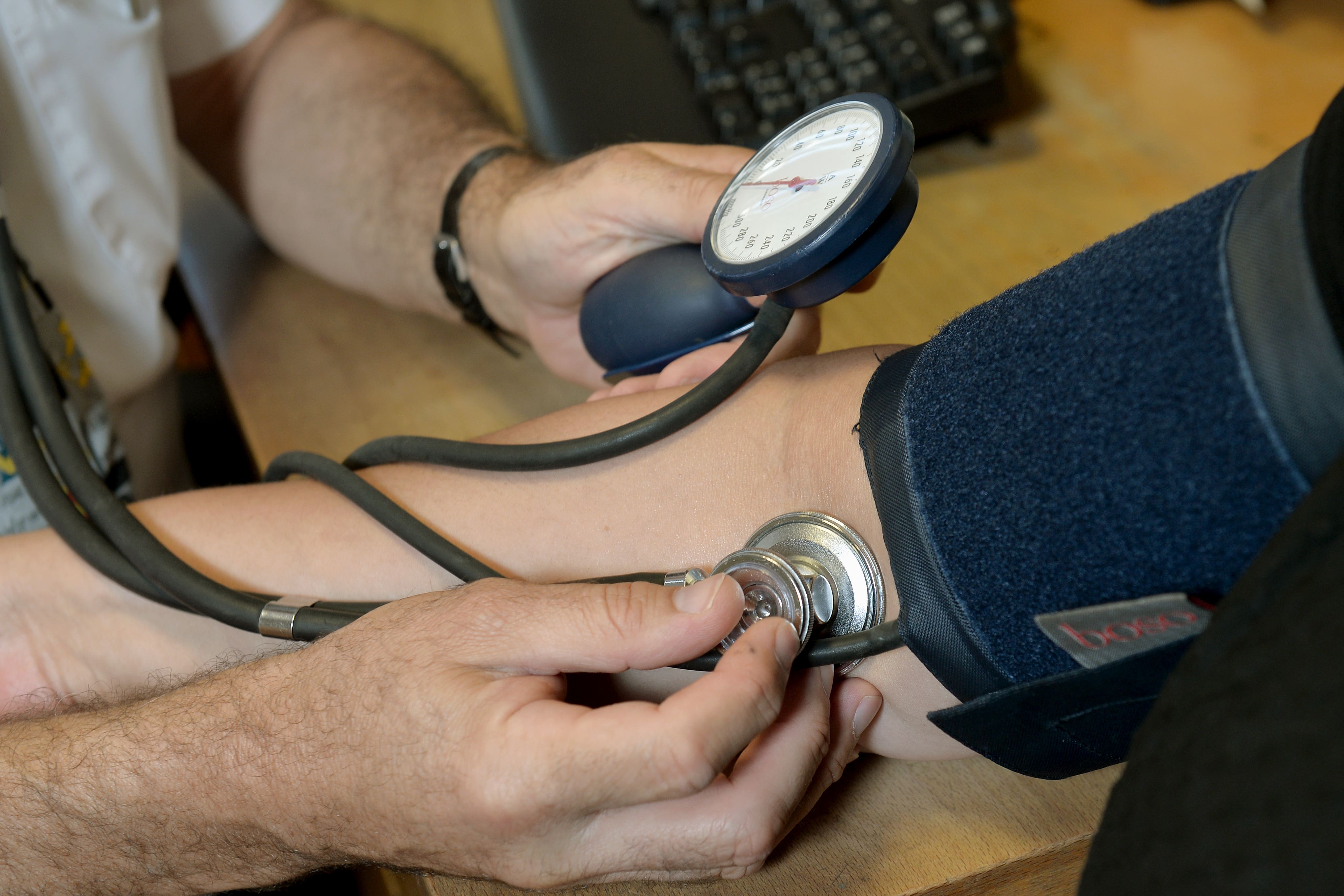Almost one in 20 GP appointments booked four weeks earlier – figures
The Liberal Democrats are calling on the Government to review GP access in rural areas.

The number of four-week waits for GP appointments in England is rising, new figures suggest.
Around 1.3 million appointments in May were booked more than four weeks previously, new data released by the Liberal Democrats shows.
This is up from 912,000 in May 2022.
Far too many people are struggling to get a GP appointment when they need one, leaving them worried or waiting in pain for the treatment they need
Overall, 4.8% of May appointments were booked more than four weeks earlier.
But in Gloucestershire this rose to 9.7%, in Sheffield it was 9.5%, and in Derby and Derbyshire it was 8.6%.
In Dorset it was 8.3% and in the East Riding of Yorkshire it was 8.2%.
Liverpool and North Central London both had the fewest four-week waits, with 1.8% of GP appointments in May booked more than four weeks earlier, according to House of Commons Library research.
The party is calling on the Government to review GP access in rural areas.
Liberal Democrat leader Sir Ed Davey said: “Far too many people are struggling to get a GP appointment when they need one, leaving them worried or waiting in pain for the treatment they need.
“The Conservatives have let down communities across the country by failing to recruit the extra GPs they promised.
“Rural areas are being particularly impacted by long GP waiting times, hurting families and piling pressure on other NHS services.
“The Government needs to launch an urgent review into the lack of access to GPs in rural communities and act to end yet another example of health inequality.
“Ministers should also back Liberal Democrat proposals to give everyone the legal right to an appointment within a week, or within 24 hours if in urgent need.”
The House of Commons Library research said the figures are not a direct measure of waiting times for GP appointments – many of which happen on the same day.
The figures measure the time the appointment was booked and when it took place, which may be partially explained by patient preference as well as availability.
No patient should ever have to wait this amount of time for an appointment, regardless of where they live, and we share our patients' frustration and distress when they struggle to access our care
Commenting on the figures, Professor Kamila Hawthorne, chairwoman of the Royal College of GPs, said: “No patient should ever have to wait this amount of time for an appointment, regardless of where they live, and we share our patients’ frustration and distress when they struggle to access our care.
“But the truth is that GPs and our teams cannot work any harder – we are delivering more appointments overall compared to before the pandemic.
“Around 85% of appointments in general practice are already happening within two weeks of being booked, and almost half are delivered on the day they are booked – yet we have nearly 900 fewer full-time fully qualified GPs compared to 2019.
“The current pressures in general practice are through no fault of hardworking GPs and their teams but due to years of underfunding and poor workforce planning in our family doctor service.
“GP teams make the vast majority of NHS patient contacts, and in doing so alleviate pressure across the NHS, including in A&E. But, for this to work, general practice must be properly resourced and properly staffed – and currently that is not the case.
GPs are vital to local communities and appointments are already on the rise – but we’re committed to increasing capacity so GP practices can offer more to patients
“The recently announced NHS Workforce Plan pledges to train more medical students and outlines plans to increase capacity in GP training, but we also need significant investment in retention initiatives so that existing GPs are encouraged to stay in the profession, as well as steps to cut bureaucracy so that GPs have more time to deliver care to the growing numbers of patients who need it.”
A Department of Health and Social Care spokesperson said: “GPs are vital to local communities and appointments are already on the rise – but we’re committed to increasing capacity so GP practices can offer more to patients.
“We recently announced £240 million to support practices to tackle the 8am rush and make it easier and quicker for patients to see their GP using technology.
“And our Long Term Workforce Plan will deliver the biggest training expansion in NHS history and recruit and retain hundreds of thousands more staff, including in rural areas.”